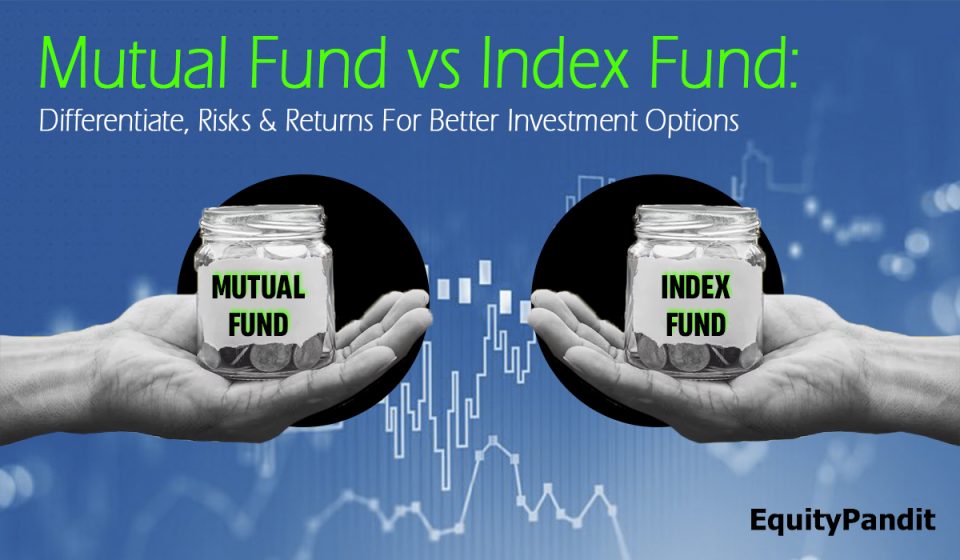Where To Invest Index Funds Or Mutual Funds
Index funds and mutual funds are two popular choices that can help diversify your portfolio and grow your wealth. While both offer access to a broad range of securities, their approach to investing is quite different. Understanding these differences is key to making the right choice for your financial goals. Let’s explore how they work and which might be better suited for your needs.
Understanding Index Fund
Index funds invest in stocks that mirror a stock market index, like the NSE Nifty or BSE Sensex. These funds are passively managed, meaning the fund manager buys the same stocks in the same proportion as the index without changing the portfolio. The goal is to match the returns of the index they track.
For example, an index fund tracking the NSE Nifty will hold 50 stocks in the same proportions as the Nifty Index. A broader index like the Nifty Total Market Index may have around 750 stocks across different sectors and market sizes. Index funds invest in all the securities of the index, which may include stocks and bonds. Unlike actively managed mutual funds that aim to outperform the market, index funds try to match the performance of the index they follow.
Understanding Mutual Fund
A mutual fund pools money from several investors and invests it in various financial securities like stocks, bonds, gold, and more.
Professional fund managers manage mutual funds and invest the pooled money to generate returns or capital gains. Individual investors can access a professionally managed portfolio of stocks and bonds. Each investor shares equally in the fund’s profits or losses.
Index Funds vs. Mutual Funds
1. Management Approach and Investment Strategy
For Index Funds
- Best for investors seeking a low, passive investment approach.
- Require minimal involvement from fund managers.
- Have lower management fees, meaning lower costs for investors.
- Provide a diversified portfolio by tracking a specific market index, reducing risk.
- Ideal for investors with low-risk tolerance.
For Mutual Funds
- Professionally managed by fund managers who select stocks or bonds to outperform the market.
- Require more resources and expertise, resulting in higher costs for investors.
- Have the potential for higher returns, making them suitable for investors with a higher risk tolerance.
2. Expense Ratio
The expense ratio is the annual fee charged by fund managers for managing a fund’s assets.
For Index Funds
- Typically have lower expense ratios due to their passive investment strategy.
- Less intervention by fund managers leads to lower costs for investors.
- Lower fees can result in potentially higher returns over time.
For Mutual Funds
- Have higher expense ratios due to active management.
- Fund managers spend more time and expertise selecting investments.
- Higher fees can reduce overall returns, but may be justified if the fund outperforms the market.
3. Performance
For Index Funds
- Invest in the same securities as a specific market index, closely matching the performance of the market.
- Aim to mirror the market rather than beat it, using a passive strategy.
- Benefit from low costs, which have led to strong long-term performance.
For Mutual Funds
- Try to beat the market by actively selecting individual stocks or bonds.
- Can offer higher returns, but also carry the risk of underperformance due to poor selection by the fund manager.
- Higher fees reduce overall returns.
- Although they have higher return potential, index funds have often outperformed mutual funds in the long term due to lower costs and passive strategies.
- Past performance does not guarantee future results.
4. Simplicity
For Index Funds
- Use a passive approach to replicate a specific market index.
- Investment decisions are predetermined, making the strategy straightforward.
- Portfolios are diversified in proportion to the index, making it easy for investors to understand the holdings and performance.
- Require less frequent monitoring by investors.
For Mutual Funds
- Actively managed, making them more complex than index funds.
- Frequent portfolio changes lead to higher expenses and potential tax implications.
- Investors need to do more research, including evaluating the fund manager’s past performance and investment strategy.
5. Risk
Both index and mutual funds carry risk, so investors should consider their risk tolerance and goals before investing.
For Index Funds
- Generally less risky due to diversification across a wide range of companies and industries.
- Spreading investments helps reduce the impact of any single security’s poor performance.
For Mutual Funds
- Can be riskier as they may focus heavily on specific securities or sectors.
- While they have the potential to outperform the market, they also face a higher risk of underperforming based on the fund manager’s decisions.
6. Passive vs Active Management
For Index Funds
- Passively managed, tracking a specific market index.
- Fund manager does not make active decisions but follows the index’s composition.
For Mutual Funds
- Actively managed, with fund managers selecting securities to beat the market.
- Investment decisions are based on the fund manager’s strategy and analysis.
Returns of Some Large Cap Mutual Funds
| Scheme Name | YTD | 2023 | 2022 | 2021 |
| ICICI Prudential Bluechip Fund – Direct Plan – Growth | 19.77% | 28.14% | 7.53% | 27.63% |
| Kotak Bluechip Fund – Direct Plan – Growth | 18.32% | 23.81% | 3.28% | 27.61% |
| Nippon India Large Cap Fund – Direct Plan – Growth | 22.44% | 32.24% | 12.30% | 31.44% |
| Baroda BNP Paribas Large Cap Fund – Direct Plan – Growth | 22.45% | 26.28% | 5.47% | 22.21% |
Conclusion
Consider your investment objectives, level of risk you are willing to take, and your investment’s time frame before selecting between index and mutual funds.
Index funds are perfect for those investors who want less risk and constant returns. Meanwhile, mutual funds can be more suitable for the optimistic ones to take on higher risk with the hope of higher returns.
Unlock profitable opportunities every day! Unicorn Signals provides actionable intraday trading signals for stocks and futures. Don’t miss out – download Unicorn Signals and start winning now!







